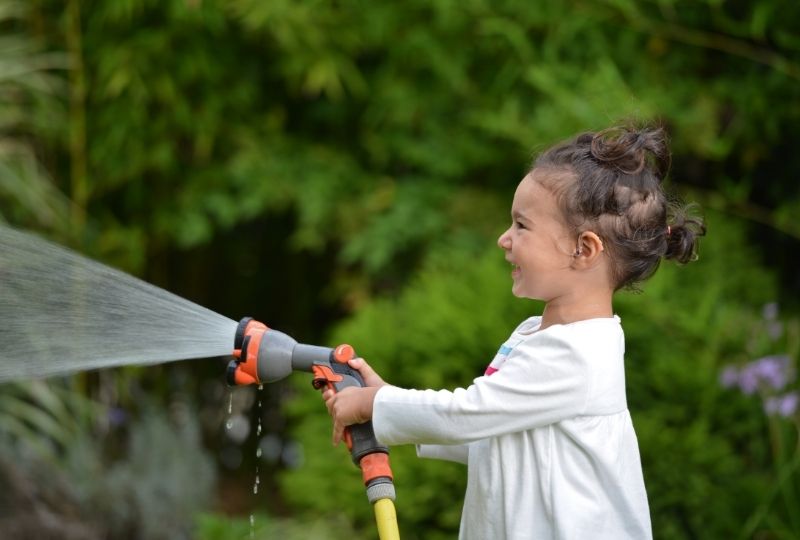Just in time for summer, we present some answers about what your hearing aids can handle! Water and moisture used to destroy hearing aids, but technology has evolved. Many new hearing aids are at least water resistant. Some are waterproof. Let’s tackle a few questions about what this actually means.
What is the difference between water-resistant and waterproof hearing aids?
A water resistant hearing aid can at least withstand splashes of water. This is helpful if a rainstorm catches you off guard or if you forget to remove your hearing aid before showering. It can also take incidental exposure to moisture, such as perspiration during intense physical activity. A water resistant hearing aid may not be designed for submersion.
Some hearing aids are billed as “waterproof.” Manufacturers test these hearing aids to ensure they can withstand water submersion. Although “waterproof” does not have a technical definition, most companies who use the term have evaluated the product’s ingress protection (IP) rating in a laboratory (“ingress” means “entrance” and is just the technical term for stuff that doesn’t belong in a device getting inside it). It is common to start reporting a device as “waterproof” when it can be safely submerged in water a little less than 3 feet deep for up to 30 minutes.
Can I swim with a waterproof hearing aid?
There are currently no hearing aids recommended for swimming. A hearing aid manufacturer offered a swimmable hearing aid in the last decade but later discontinued the model.
If swimmable technology exists, why hasn’t it caught on?
Best guess: the water rushing over the microphone of the hearing aid makes a loud rushing sound.
If I can’t swim with my waterproof hearing aids, what’s the point?
Your waterproof hearing aid is more durable in the case of accidental water submersion. Trust us, it happens more than you think. Increased durability is especially helpful for children who wear hearing aids. These features mean hearing aid users can wear their devices in a wider variety of situations.
Does that mean I can rinse my waterproof hearing aid to clean it?
No. We still advise cleaning your hearing aid with the included brush/wax loop and a microfiber cloth. If debris on the hearing aid is hard to remove, use a slightly damp, clean cloth. Do not use soap, rubbing alcohol or cleaning products on your hearing aids.
What about liquids and substances besides water?
Avoid exposing the hearing aid to hair products and makeup, as these could be problematic. Sunblock is a no-go on hearing aids. Apply your sunscreen before putting your hearing aids on. Many hearing aids have been tested in the laboratory against the ingress of dirt and dust (and for you beach goers, sand!). Ask your audiologist if you want to know the specifications of your particular device.
Do I need to know anything else?
Water resistant and waterproof features mainly prevent sudden hearing aid death by protecting internal components. This means that even if a wet hearing aid is still working, it may not function at its best. Even waterproof and water resistant hearing aids should be thoroughly dried after water exposure. The ideal way to dry a hearing aid is with a desiccant or dehumidifier. Never recharge a rechargeable hearing aid until it is dry.


